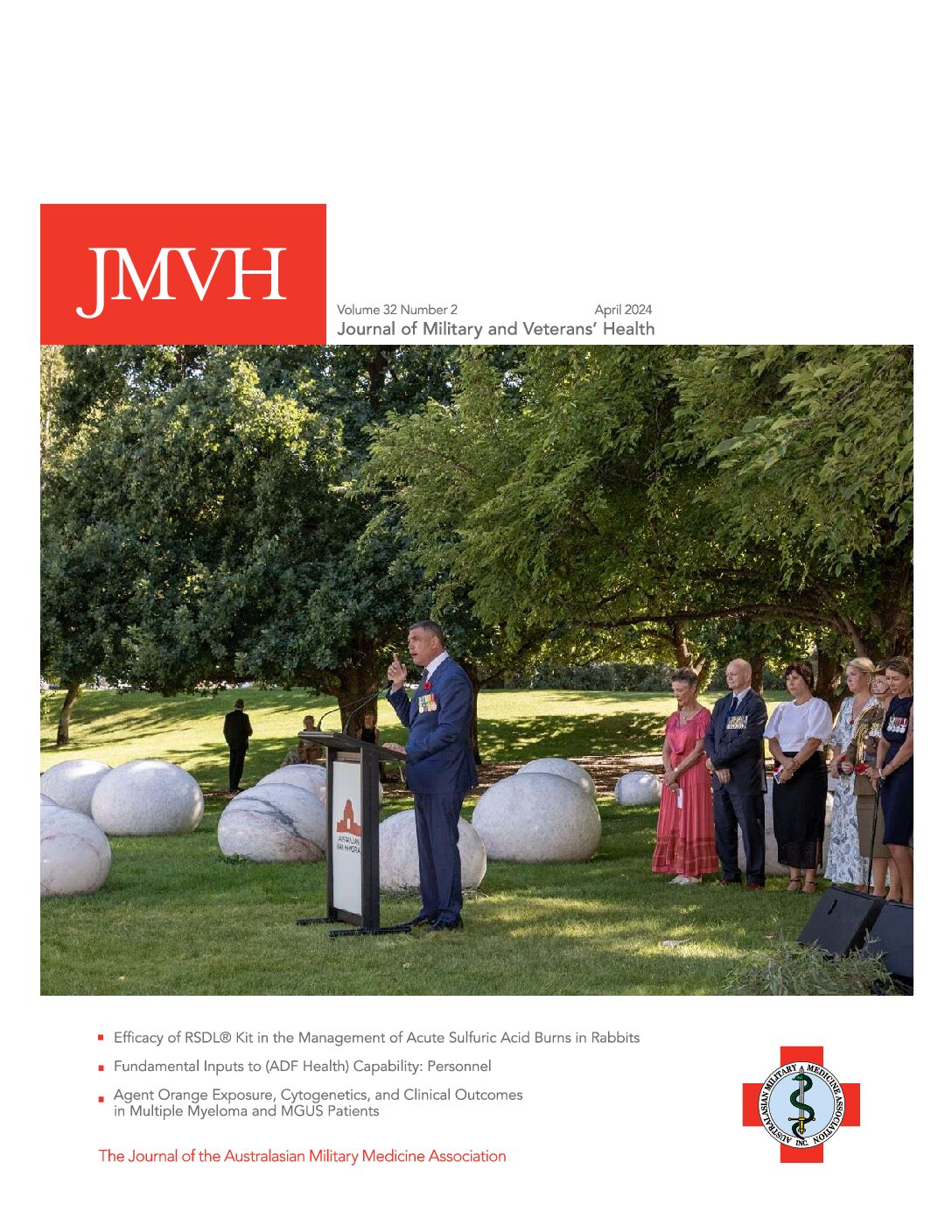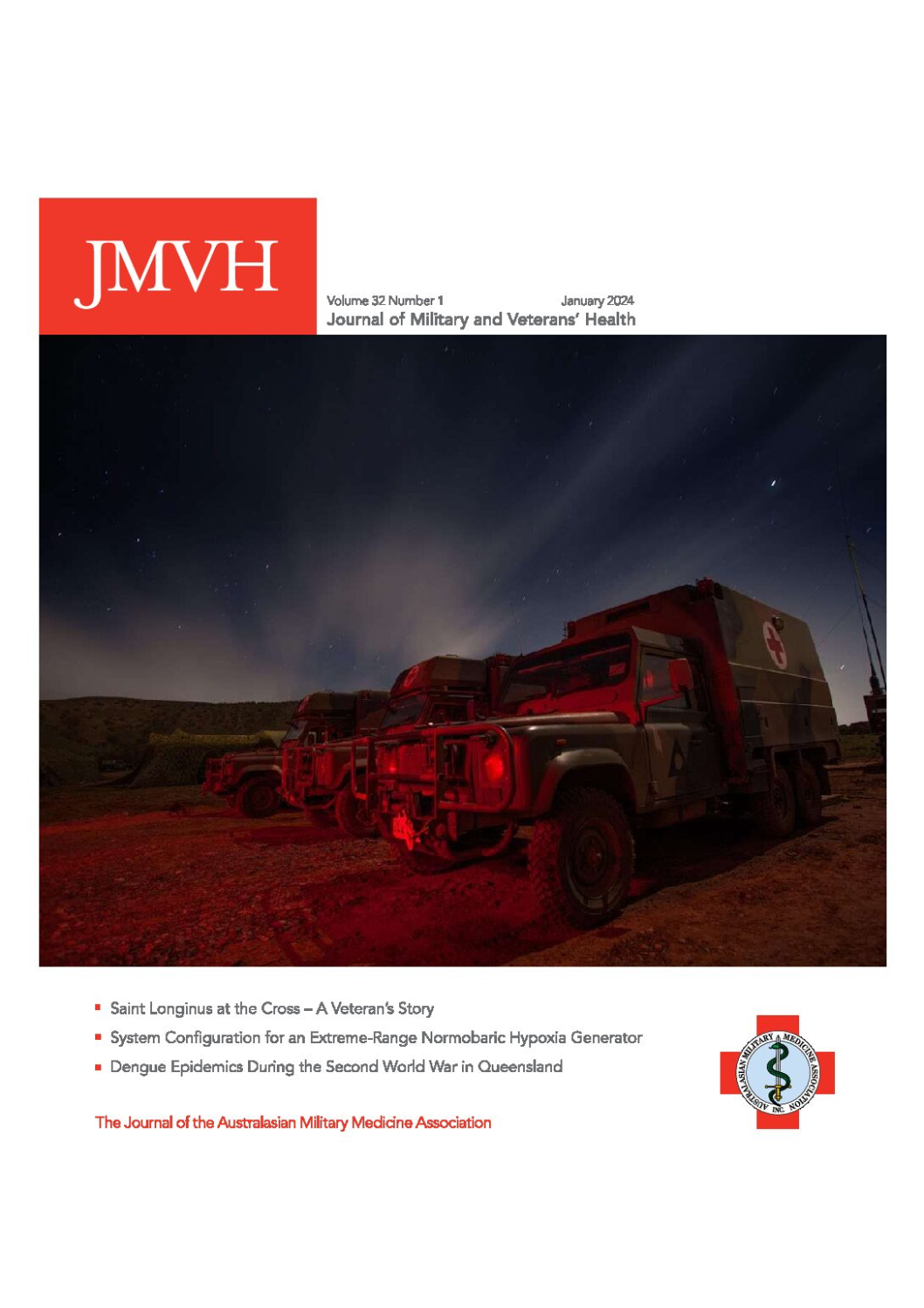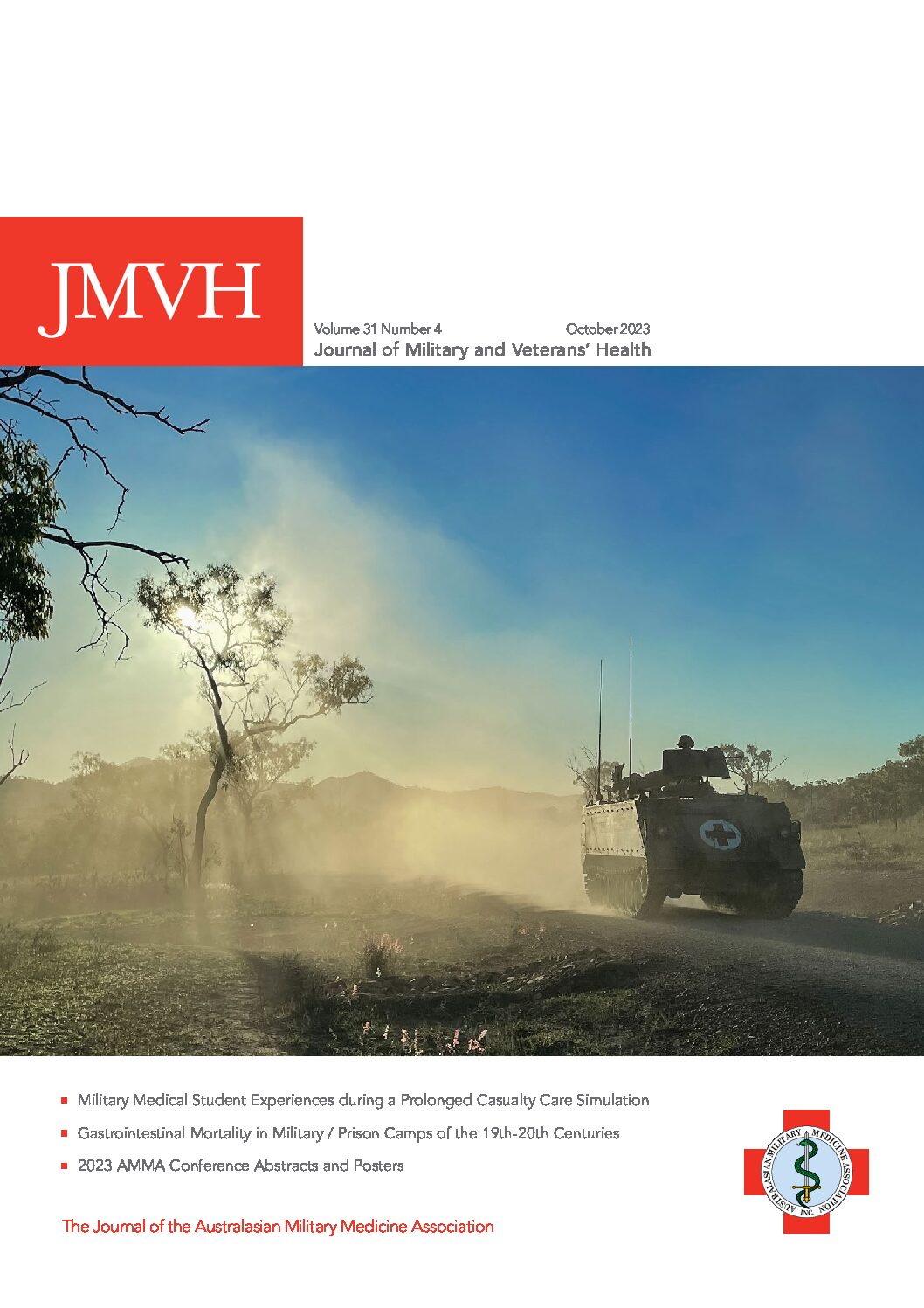The Australian Military Medicine Association held its most successful conference ever at the Hotel Grand Chancellor in Hobart from the 20th to 22nd of October 2000. About 120 delegates attended and were privileged to hear some 30 high-quality papers read and join in a number of extra-Conference activities.
The conference was opened at Anglesea Barracks on the Friday night by His Excellency the Governor of Tasmania, Sir Guy Greene, KCB in a most convivial and historic atmosphere. Earlier in the day, a large group of members took the opportunity to visit the Australian Antarctic Division for a workshop on the medical challenges of cold climate operations.
On Saturday, the conference proceedings in seriousness kicked off with the Qantas Keynote Address given by Captain Bob Mabry, US Army. Bob, who first joined the army as a combat soldier, later became a Special Forces medic and subsequently completed his medical degree. Bob’s paper covered his experiences as a combat medic during the Battle of Mogadishu, covering many of the unique aspects of urban combat medicine. The remaining papers in the Saturday morning session concentrated on operational medicine.
Following the lunch break, an operational Open Forum was held. During this, representatives of the operational arms of Navy and RAAF (Commodore Les Pataky, RAN and Air Commodore John Blackburn, RAAF, respectively) joined the Director General, Defence Health Services, Brigadier Wayne Ramsey (who also had to represent the operational Army as their representative was forced to pull out at the last minute) in discussing how they considered health support to operations should be provided. This forum provoked a lively discussion from the floor. The forum was followed by a varied group of papers covering some historical matters (such as the Boxer Rebellion) and also ethical issues relating to research undertaken on military personnel.
The Association’s Annual General Meeting followed the day’s proceedings. At the AGM, Nader Abou-Seif stepped down as President, to be replaced by Russ Schedlich. Other Councilors were also re-elected. The Treasurer announced a sound financial position, and no requirement to increase membership fees.
The official conference dinner was held on the Saturday night, and was a marvelous affair. In a venue overlooking Constitution Dock, we were treated to some excellent Tasmanian fare, and heard an inspirational talk by our guest speaker, Bem Cuthbertson, renowned adventurer, best know for his recent re-enactment of Bass and Flinders’ explorations in the Norfolk. We were also delighted to here of Air Commodore Short’s impending elevation to the position of Surgeon General and took the opportunity to informally express our appreciation to General Peam for his support of the Association during his term as Surgeon General. Trafalgar Night could not be allowed to pass without a toast to the Immortal Memory.
The second full day of the conference started with a keynote address given by Patrick Dagassan, a Swiss pharmacist, who related his experiences in providing humanitarian support in eastern Europe and discussed many of the issues and problems that arise in such work. Patrick’s paper was followed by two others, which looked at humanitarian support in Afghanistan and East Timor.
The conference then split into concurrent sessions, with papers being presented on a wide variety of themes, including operational health support, and several original research projects.
At the close of the conference, the Association’s awards and grants were announced (see page 120). Foremost amongst these was the Weary Dunlop Award for the best original paper presented at the Annual Conference. The Award was won by Rob Lewin and Richard Mallet for their paper entitled “a comparison of 20-metre shuttle run test (20mSRT) scores and time loss due to injury for the first six months of training at ADFA from 1999- 2000”.
The conference acknowledged the contribution of Nader Abou-Seif to the Association and presented him with an Association plaque recognising his service and an autographed copy of Bob Mabry’s book – Blackhawk Down.
This conference was very strongly and generously supported by sponsors, whose contribution allows us to keep costs to a minimum. Our major sponsor, Smith Kline Beecham, continue to be most generous in their support for the Association. Qantas was very generous in providing the funding for our overseas guest speaker. The Association is also grateful for the support of the other conference sponsors – Essex Pharma, Roche Diagnostics, BD, Laerdal, CSL Vaccines, Kimberly-Clark, Medicpac, Device Technologies Australia, and Multigate.
Finally, the Association’s Secretariat – Paula, Joyce and Amy – hosted us in their hometown and put in an enormous amount of hard work without which the Conference would not have been able to take place.
Next Year’s Conference
Next year’s conference, which will be a celebration of our 10th anniversary, will be held on the Gold Coast, from 19 to 21 October 2001 at the Gold Coast International Hotel.






